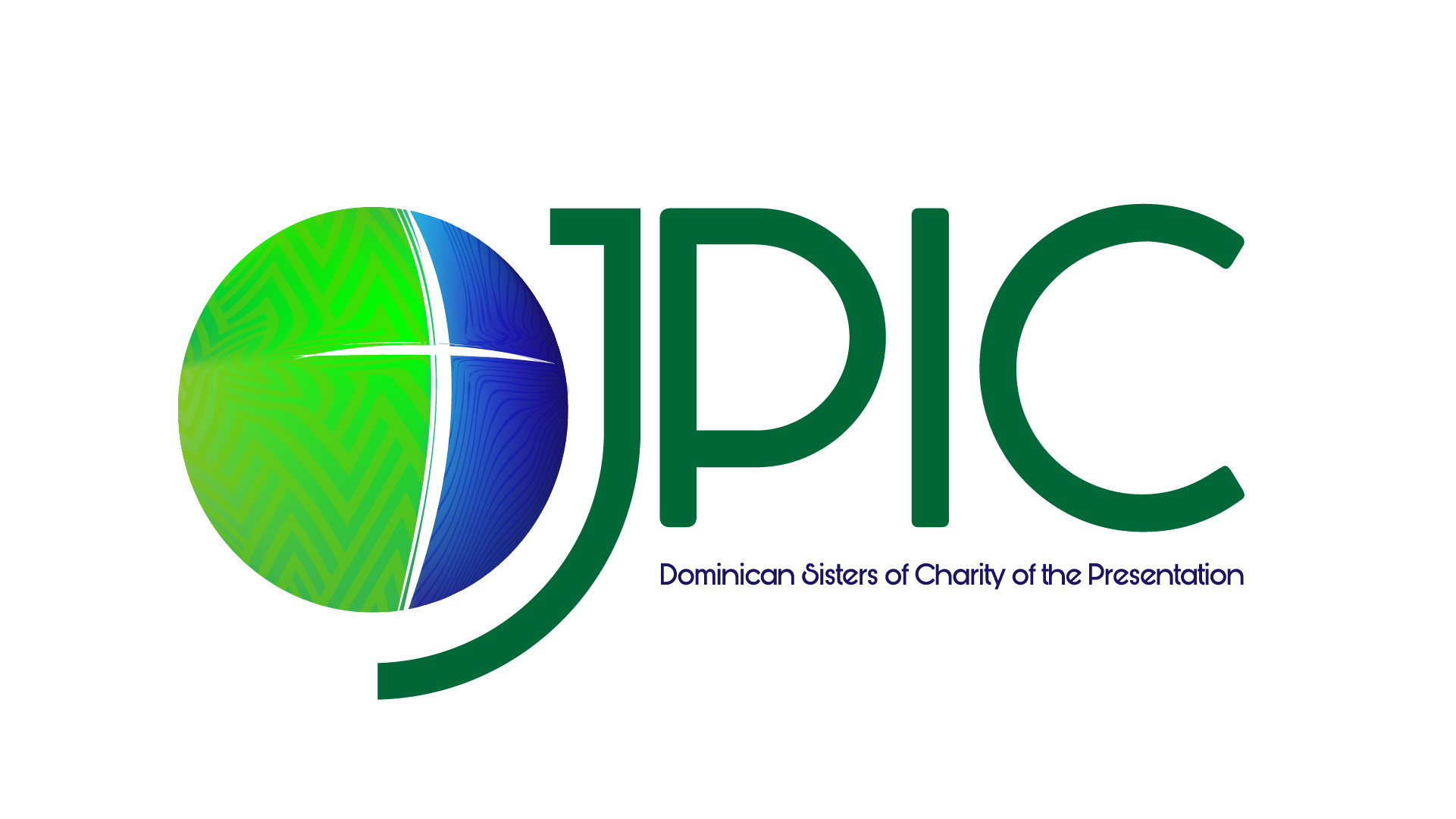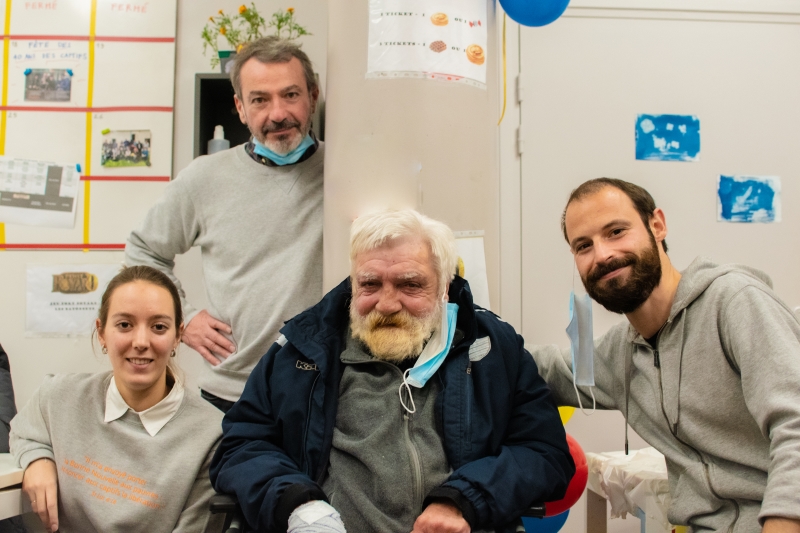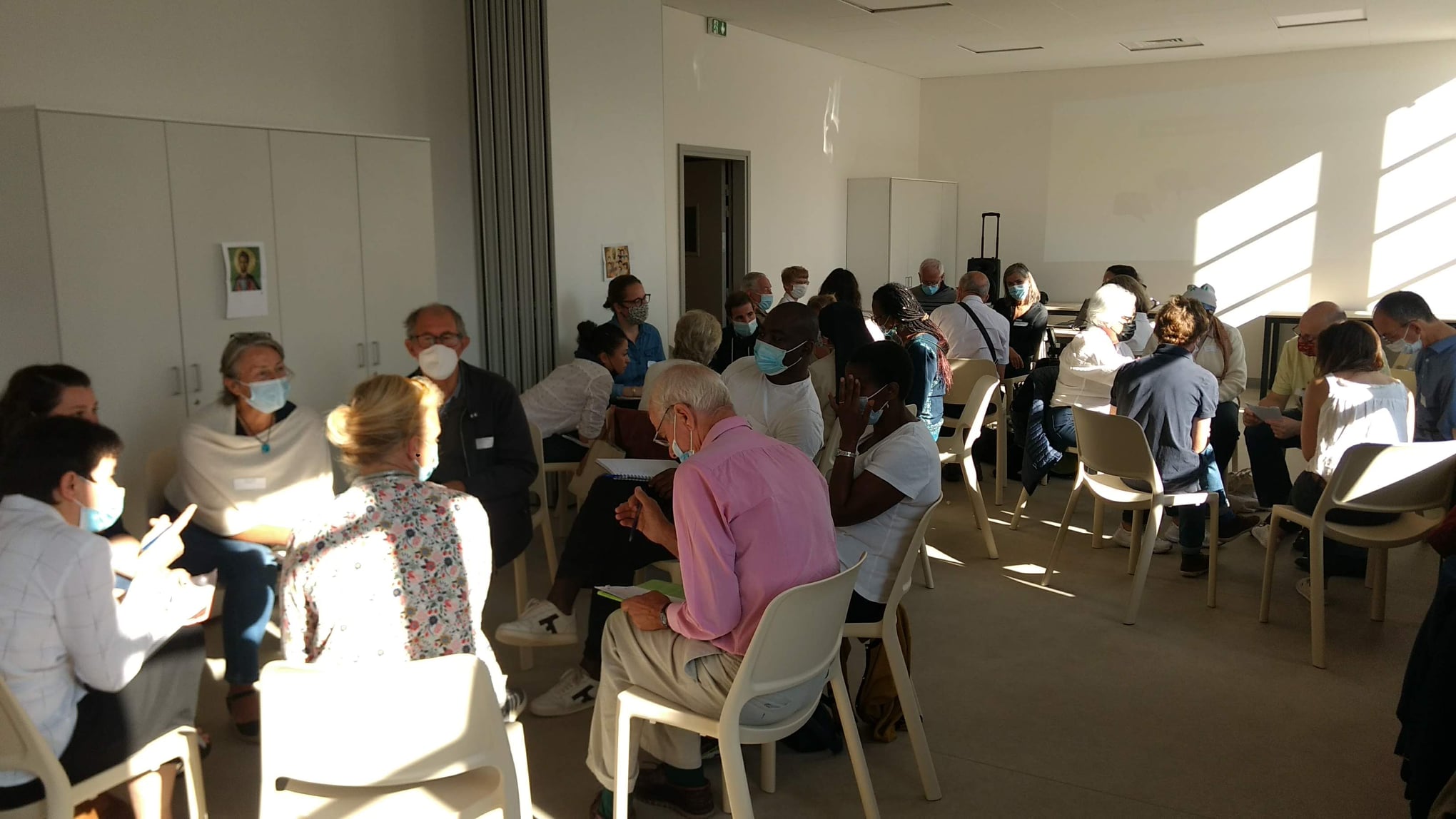France, 12/18/2021, Sr. Pascaline Bilgo, JPIC delegated - Province of France.- The celebration of International Migrants Day shows from the outset that the phenomenon of migration is an indisputable reality. Indeed, migration is increasingly attracting the attention of the international community. The challenges and difficulties of these migratory movements require enhanced cooperation and collective action between countries.
 There are many reasons why people leave their country: to study, to join family members, to look for a job or a livelihood. Many also leave their countries to flee crime, violence, conflict, persecution, insecurity, discrimination, natural disasters and environmental degradation, and poverty. Although some cases of international migration are motivated by economic reasons, conflict, violence, persecution, political repression, and other human rights violations are among the main causes of human movements.
There are many reasons why people leave their country: to study, to join family members, to look for a job or a livelihood. Many also leave their countries to flee crime, violence, conflict, persecution, insecurity, discrimination, natural disasters and environmental degradation, and poverty. Although some cases of international migration are motivated by economic reasons, conflict, violence, persecution, political repression, and other human rights violations are among the main causes of human movements.
On 18 December 1990, the General Assembly adopted a resolution on the International Convention on the Protection of the Rights of all migrant workers and members of their families. Every year, on 18 December, the United Nations, through the International Organization for Migration (MIO), an agency linked to the United Nations, uses International Migrants Day to highlight the contributions of migrants, including internally displaced persons, and the challenges they have to face.
Pope Francis continuously expresses his concern about the sad reality of many migrants and refugees. He urges us to provide to migrants and refugees an appropriate and dignified hospitality. For, even if the complex reality of human migration has very diverse motives, it reveals the seed of an aspiration for a transcendent horizon of justice, freedom and peace. It testifies to a concern that refers, even if indirectly, to God: it is in Him alone that man can find the total appeasement of all his expectations.
Many countries are showing a remarkable effort to welcome immigrants. France is one of the countries that are in favor of welcoming migrants. The Province of France is in this dynamic: it does not cease to welcome sisters from other structures for des studies or for the mission. This attitude is a sign of hospitality, of openness to other cultures, and of fraternity. The commitment of some sisters of the Province within the associations that work for the dignity of the person, the poorest, foreigners, is the concrete sign of a desire to accompany the most fragile and the commitment to work for the cause of immigrants. As an indication, we mention three places of engagement:

- Jeanne Marie's table in Tours: it welcomes migrants, retired person at the end of their resources, single people with no income or too modest income and provides them with meals, conviviality and dignity. In connection with other associations, it is also a swing, a node of activities, which offers administrative assistance to migrants, cultural afternoons, learning and training.
- To the Captives the Liberation, in Paris: this association has the mission of being a presence of the Church with people in social exclusion: people without home or in a situation of prostitution, minors in wandering. The association accompanies them on a path of liberation and integration. Thanks to its teams of professionals and volunteers, the association accompanies people on the street through street touring, permanence, and accompaniment. Most of those welcomed are migrants.
- Maison Bakhita: it is a project of the Diocese of Paris dedicated to supporting and promoting the reception and integration of migrants. It is both, a place of resources to support the commitment of its partners, a place of accompaniment of migrants through workshops and trainings, and a place of fraternal meeting to raise awareness among the general public on the issue of migration.
 Maison Bakhita
Maison Bakhita
As Nadia Elena Vacaru[1] said, the challenge of migration requires charity, hospitality and solidarity with migrants, as well as a close and genuine cooperation at the level of the international community, to protect the dignity, rights and freedom of people. Thus, it requires the "creation of new networks of solidarity, with the promotion of a true spirit of dialogue and mutual enrichment that results from the encounter of cultures. Migration is a living witness to the Gospel, through the testing of the virtues of charity, hope and faith"[2].


 EN
EN  ES
ES  FR
FR 



